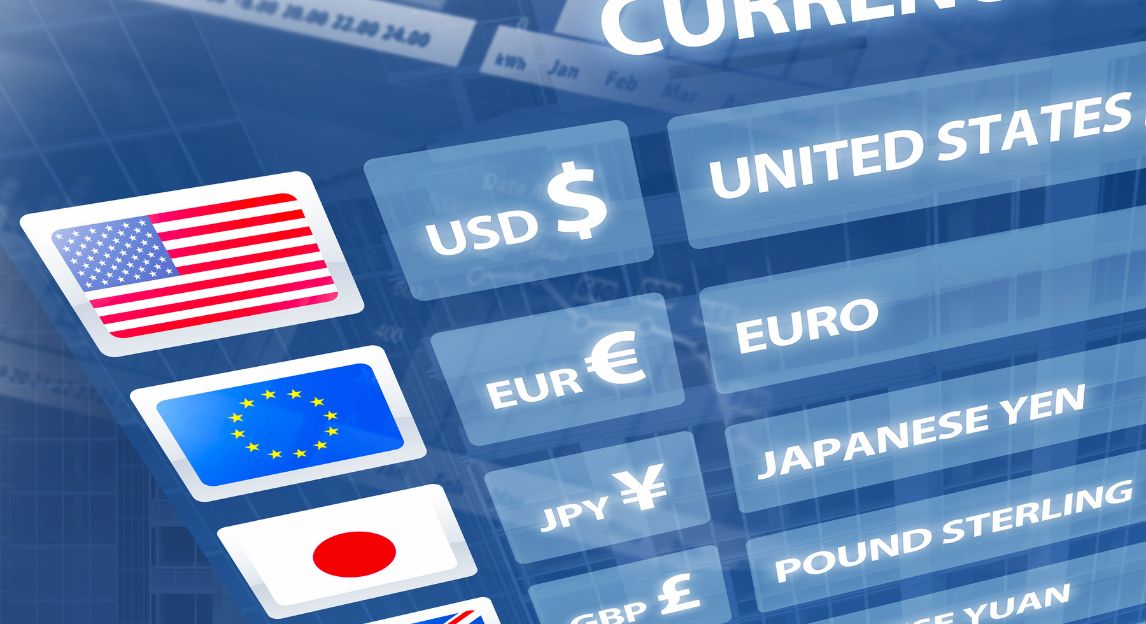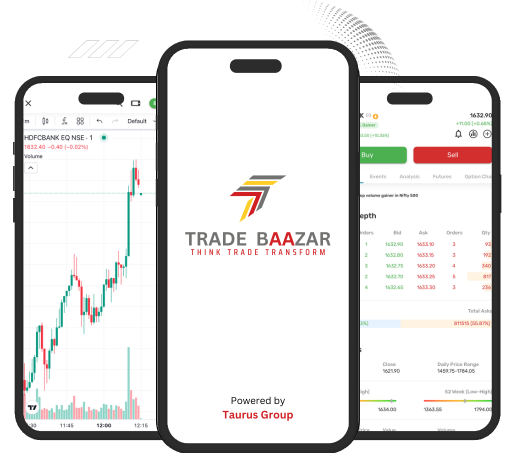Currency trading hub: Navigate global markets with precision and track variety of currencies
10+
currency trading pairs to choose from
Up to 50%
Savings on cost of each trade
10+
Hedging strategies to choose from

What is Currency/Forex trading ?
The Foreign Exchange Market is where participants can buy, sell, or trade on currencies worldwide in pairs. The Foreign Exchange Market (Forex) or currency market is one of the world’s largest, most liquid and most dynamic financial markets. It gives traders a platform to speculate, hedge and leverage on the value of one currency against another. It can be in a structured, exchange regulated or over-the-counter (OTC) platform.
Popular Currency Pairs to Trade
Why choose Currency Trading with Taurus ?
Steps to open an account
Register

Complete the online registration form by providing your personal details to create a secure account.
OPEN ACCOUNTVerification

Submit the required documentation and complete the certification process to confirm your identity and compliance.
Start trading

Fund your account and start trading with access to investments and tools.
Request A Call Back
Simplify your investment journey with our platforms
Simplify your investment journey with our platforms, crafted to offer a smooth process and rewarding results.

Enjoy real-time market updates, latest features and a seamless trading experience.

Comprehensive portfolio view and analysis for effective investment management.

Advanced charting tools for in-depth market analysis.

User-friendly interface for quick and easy trading.

Testimonials
What our happy client say.
As a process transformation company, we rethinks and rebuilds processes for the digital
FAQs
Yes, investing in the FOREX Market is legal in India.
Yes, in fact, FOREX is considered to be one of the most transparent markets globally when compared with any other liquid market.
A cross-currency refers to a currency pair or transaction that does not involve the U.S. Dollar. And RBI does allow cross currency pairs to be traded in the derivatives market in India.
A currency pair is the quotation of two different currencies, with the value of one currency being quoted against the other. For eg USD 1 = INR 72.55.
If you have an online trading account, you don’t need any additional permission to do currency trading. You can buy and sell currency pairs on the NSE or the BSE currency segment.
The Foreign Exchange Market is where participants can buy, sell, or trade on currencies worldwide in pairs. It can be in a structured, regulated exchange or over-the-counter (OTC) platform. The primary participants of the forex market are forex brokers, commercial banks, legitimate dealers, and currency authorities. While participants may own their trading centres, it is essential to note that the market is spread globally. There are multiple markets in which participants can trade, with close and continuous communication between trading venues.
Like the stock markets, the capital market regulator SEBI regulates Forex trading in India. They ensure that the companies comply with the Foreign Exchange Control Act of 1999. The Reserve Bank of India, also known as the RBI, regulates foreign exchange transactions. In India, you can trade currencies in pairs like the Indian Rupee (INR), US Dollar, Japanese Yen, British Pound, and Euro. Currency trading between EUR/USD is also allowed.
The foreign exchange (forex) market is the world's largest financial market, per the 2019 Triennial Central Bank Survey of FX and OTC Derivatives Markets. The global forex market in 2022 will be worth $2.409 billion ($2.409 trillion). The average daily volume of the forex market is around $6.6 trillion.
Currency trading in India is only allowed in 7 pairs- USD/INR, EUR/INR, JPY/INR, GBP/INR, EUR/USD, GBP/USD, and USD/JPY. Three stock exchanges facilitate forex trading in India- NSE, BSE and Metropolitan Stock Exchange of India- jointly regulated by SEBI and RBI. USD/INR, EUR/INR, and GBP/INR lot sizes are 100 units, and JPY/INR lot size is 1,00,000 units.
No, since there are no physical deliveries like equities in currency trading, a Demat account is not mandatory. You can open only a forex account with any SEBI-registered broker to trade in forex.
A "gap" occurs when the opening price is higher than the last session's high, known as the gap up, or lower than the previous session's low, known as the gap down. These gaps can be significant for trading as there are usually traders who believe the gaps will be closed relatively quickly. And this allows forex traders to make possible profits as they can better predict the possible short-term direction of the price. Factors leading to a gap include- big news, major financial breakthroughs, and economic/global catastrophes.
You can start forex trading with our TradeBaazar app quickly by opening an account with us with personal details like your name, age, etc., and uploading the required documents. Post verification, your account will be activated, and you can start forex trading.
A currency futures is a forward agreement that allows exchanging one currency for another at a future date at a specified purchase price. Spot FX contracts deliver the underlying currency immediately (usually two days) from the settlement date. The main difference between contracts is when the transaction price is determined and when the physical exchange of currency pairs takes place.
NSE Clearing pre-collects the initial margin for all open positions of CM (Clearing member) based on the margin calculated by NSE Clearing-SPAN (Standard Portfolio Analysis of Risk). Next, the CM must collect the initial margin from the TM and respective clients. Similarly, the TM has to collect the advance payment from the customer. Initial margin requirements are based on 99% value-at-risk over a daily time range. The initial margin is calculated over two days using an appropriate statistical formula for futures contracts where the market settlement amount may be collected after the next day's open. SEBI recommends the method of calculating the Value-at-Risk percentage from time to time.



















